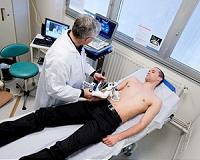 |
for Astrobiology Magazine Moffett Field (SPX) Feb 15, 2011 Despite decades of research and billions of dollars, cancer remains a major killer, with an uncanny ability to evade both the body's defenses and medical intervention. Now an Arizona State University scientist believes he has an explanation. "Cancer is not a random bunch of selfish rogue cells behaving badly, but a highly-efficient pre-programmed response to stress, honed by a long period of evolution," claims professor Paul Davies, director of the BEYOND Center for Fundamental Concepts in Science at ASU and principal investigator of a major research program funded by the National Cancer Institute designed to bring insights from physical science to the problem of cancer. In a paper published online Feb. 7 in the UK Institute of Physics journal Physical Biology, Davies and Charles Lineweaver from the Australian National University draw on their backgrounds in astrobiology to explain why cancer cells deploy so many clever tricks in such a coherent and organized way. They say it's because cancer revisits tried-and-tested genetic pathways going back a billion years, to the time when loose collections of cells began cooperating in the lead-up to fully developed multicellular life. Dubbed by the authors "Metazoa 1.0," these early assemblages fell short of the full cell and organ differentiation associated with modern multicellular organisms - like humans. But according to Davies and Lineweaver, the genes for the early, looser assemblages - Metazoa 1.0 - are still there, forming an efficient toolkit. Normally it is kept locked, suppressed by the machinery of later genes used for more sophisticated body plans. If something springs the lock, the ancient genes systematically roll out the many traits that make cancer such a resilient form of life - and such a formidable adversary. "Tumors are a re-emergence of our inner Metazoan 1.0, a throwback to an ancient world when multicellular life was simpler," says Davies. "In that sense, cancer is an accident waiting to happen." If Davies and Lineweaver are correct, then the genomes of the simplest multicellular organisms will hide clues to the way that cancer evades control by the body and develops resistance to chemotherapy. And their approach suggests that a limited number of genetic pathways are favored by cells as they become progressively genetically unstable and malignant, implying that cancer could be manageable by a finite suite of drugs in the coming era of personalized medicine. "Our new model should give oncologists new hope because cancer is a limited and ultimately predictable atavistic adversary," says Lineweaver. "Cancer is not going anywhere evolutionarily; it just starts up in a new patient the way it started up in the previous one." The authors also believe that the study of cancer can inform astrobiology. "It's not a one-way street," says Davies. "Cancer can give us important clues about the nature and history of life itself."
Share This Article With Planet Earth
Related Links - Space Medicine Technology and Systems
 Long-Distance Ultrasound Exams Controlled By Joystick
Long-Distance Ultrasound Exams Controlled By JoystickParis, France (ESA) Dec 14, 2010 Ultrasound is an extremely useful medical technique, provided the operator has the expertise. In small clinics, however - and still more on spacecraft - trained radiologists are rare. So ESA is testing a new robotic ultrasound system for remote operation by distant specialists. An assistant simply holds the device against the patient and the ultrasound expert can move the probe as if ... read more |
|
| The content herein, unless otherwise known to be public domain, are Copyright 1995-2010 - SpaceDaily. AFP and UPI Wire Stories are copyright Agence France-Presse and United Press International. ESA Portal Reports are copyright European Space Agency. All NASA sourced material is public domain. Additional copyrights may apply in whole or part to other bona fide parties. Advertising does not imply endorsement,agreement or approval of any opinions, statements or information provided by SpaceDaily on any Web page published or hosted by SpaceDaily. Privacy Statement |